My destiny to introduce Oil Palm as a plantation crop in Sri Lanka
- Rex Henry Perera FIPM Sri Lanka.
My Introduction to Oil Palm.
Fresh from training, Carson Cumberbatch and Company, managing agents for Grand Central Holdings in Sri Lanka, then Ceylon, appointed me as Assistant Superintendent to Nakiadeniya Group in Galle District, from 1st May 1965. Nakiadeniya Group was the largest plantation in Ceylon comprising of 7300 acres of Rubber. I was required to report to the Manager of the property, Gerry Wells. Arrangements were made for the transport agent to collect my belongings and motorcycle from Colombo to transport them to my bungalow on Peelidola Division in Nakiadeniya Group. My elder brother, Norbert and my mother accompanied me to the plantation in my brother’s car to start life in my first job. I was to share a bungalow with another bachelor Assistant Superintendent, Jayampathy Weragama, until a new bungalow that was being constructed for me was completed. On the morning of the 1st of May, I rode my 650 cc, BSA Golden Flash motor cycle, to meet the Manager Mr. Wells at 9.00 am and after preliminaries I was handed over to the Superintendent Percy Dassanayake to be shown my responsibilities and duties. As this was my first appointment and the large extent 2000 acres being my responsibility, I was initially placed under the direct supervision of the Superintendent.
Within the month of May, the Manager, brought to my notice, that one of my duties was to supervise and ensure the successful germination of 212 Palm Oil seeds to arrive shortly from Malaysia. The seeds would be germinated under controlled conditions, grown in black polytene bags for planting as a pilot project. This task that I was chosen to perform, turned out to be a mammoth achievement in my planting career. I had never heard of Oil Palm before that and it was a pioneering effort in the country. My task was to geminate the seeds, plant them in large polythene bags, grow them to plants of about of 30 to 50 cm. and establish them as a field crop.
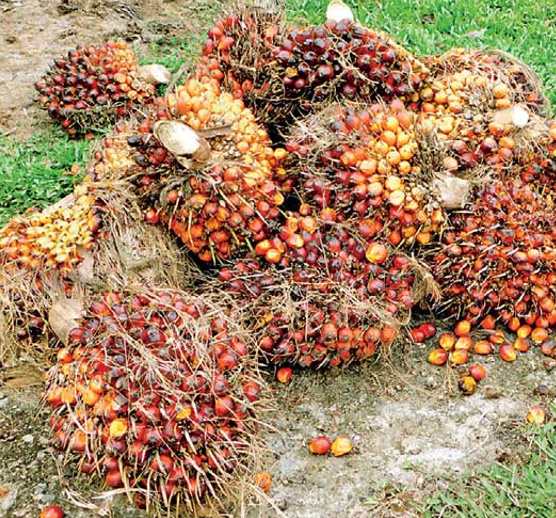
Harvested oil palm fruit bunches in Sri Lanka
Initial Preparation and Germination of First Batch of Seeds.
The Manager Mr. Gerry Wells, on his trips to Malaysia had noted the basic requirements for germination of Oil Palm seeds. This information was conveyed to me to implement the required process. I had to convert an abandoned smoke house as a germinating chamber to house the imported seeds. The tunnel that received the smoke from the furnace was covered with old 45-gallon drums cut in half and welded in place to guide the smoke through the length of the tunnel, transferring heat into the smoke house. The smoke was not permitted to enter the room. The firewood furnace was controlled to provide the required heat to ensure that adequate heat was regulated to enable a mist of moisture in the transparent polyethene bags housing 10 seeds in each bag. Regular inspections were conducted, varying the furnace temperature to ensure the required moisture levels were maintained without drops of moisture forming that could result in mould growing on the seeds.
Concentrated Effort to Achieve the Goal.
The success that we achieved in germinating the seeds resulted in seeds distributed to other plantations owned by the same Company, Grand Central Tea and Rubber Holdings, were sent to Nakiadeniya for the required management. This pioneering venture produced 54 acres of Oil Palm Plants in the flat terrain fields on Nakiadeniya, with the first plants established on Digdola Division in 1968. The success achieved and the interest of the parent body to establish this new crop within Nakiadeniya resulted in more seeds being imported and by 1970, 384 acres were established.
Political Setback for the Venture.
Thereafter, due to political changes in the country and nationalisation of plantations, the interest of the foreign owners died out. The fruit bunches that grew were falling on the ground and rotting. The unsettled situation in the country sapped the initiative of all entrepreneurs and standards on most plantations began to deteriorate. Due to the uncertain future of economic gains for the plantation owners and managers, some experienced managers looked for alternate employment within the country and overseas.
Personal Interest to Ensure Success of the Venture.
As I had put immense effort into this project, I found it hard to watch this waste encountered by the pioneering venture. By then I had purchased books from Malaysia at my personal expense and was aware of the profitability of the crop and its value to Sri Lanka. I extracted a few fruits from a ripe fruit bunch, pounded them in my kitchen using the pestle and mortar, boiled the pulp on the Kitchen Ray-Ban firewood stove in a 4-gallon bucket used for latex collection. I skimmed off the floating oil and filled it into two empty sauce bottles. I handed this sample to the Manager, who took it to the agents Carson Cumberbatch. The samples were tested by Leaver Brothers in Colombo. Lever Brothers indicated their interest in the extracted oil and visited the plantation. A pilot plant to process Palm Oil was locally fabricated by Brown and Company. I was trained in the laboratories at Lever Brothers on maintaining the standards of the oil required by Lever Brothers for their production of edible products being manufactured by the Company, using imported Palm Oil.
Introductory Procedures Adopted at the Plantation .
Harvesting tools could not be imported to Sri Lanka during that period as the country had import restrictions due to economic conditions experienced. An experimental tool was fabricated by flattening and sharpening the blade of a worn-out crowbar. This fabricated tool served the purpose to cut the thick stem of the oil palm fruit bunch to separate it from the tree. Thereafter all worn-out crowbars on the plantation were collected and made into harvesting tools.
The pilot plant was fabricated by Brown & Company and commissioned in 1972. The extraction process was improved with trial-and-error methods to fine tune the process, as most of the knowledge was from books and common sense. The processed oil was collected in 45-gallon drums and the first batch of 6 drums was despatched to Lever Brothers. This success of the pioneering deliveries of Oil resulted in the despatch of regular batches of Palm Oil in 45-gallon drums as and when batches were ready. As Oil production gradually increased, a trailer-bouser used for latex transport on the plantation was converted to transport the Palm Oil. Thereafter Palm Oil was sent to Colombo on a regular basis in the trailer-bouser towed by a tractor for the 90-mile journey to Colombo. This manner of transport was a slow and tedious process especially for the tractor driver. This situation was overcome by the procurement of a bouser for the transport of Palm Oil to Lever Brothers. This was possible as the management came under Upali Group with the change in ownership in 1974.
An attempt was also made to extract the kernels from the seeds with most of the work done manually. The seeds were separated from the pulp left after extracting Palm Oil. The extracted seeds were washed and dried using manual labour providing valuable source of income for the work force. The dried nuts were cracked in a nut cracker fabricated by Brown & Company. The Kernels were manually separated from the shells. One batch was sent to Odiris Coconut Oil Extraction plant in Matara on a trial basis to investigate the possibilities of an additional income for the plantation. Due to my departure from Nakiadeniya, I was unable to pursue this line of additional income at that time.
Change in Ownership of Grand Central Tea and Rubber Holdings.
The progress of extending the initial 384 acres of Oil Palm plantation took a setback as the Government of the country commenced nationalising the plantations from 1972, initially absorbing the Rupee owned companies and by 1975 moving on to the foreign owned assets. This resulted in the owners restricting capital investment and abandoned the expansion of Oil Palm. Nakiadeniya was owned by Grand Central Tea and Rubber Holdings, a Sterling Company and was due to be acquired in 1975.
In-between these 2 acquisition processes, the controlling shares of Grand Central was purchased by Mr. Upali Wijewardene, an entrepreneur in Sri Lanka. After the initial take-over of the Rupee Companies and before the acquisition of the foreign companies, Mr. Wijewardene converted the Sterling valued shares that owned Grand Central Company to shares of a Rupee Company. As the conversion took place in-between the two acquisition processes, Plantations owned by Grand Central avoided being acquired by the Government. Thereby Mr. Wijewardene became the sole owner of a Company having 33,000 acres, when the rest of the population of Sri Lanka could own only 50 acres per person.
In 1974 , Mr Wijewardene visited Nakiadeniya. He was impressed with the performance of the Oil Palm Plantation and with his Malaysian connections he was aware of the profitability of the Crop. With this in his mind he wanted to convert the entire 7300 acres on Nakiadeniya from Rubber to Oil Palm.
With the intensive expansion of the Oi Palm program, the management structure on Nakiadeniya was changed. The executive staff consisted of Manager, Superintendent and four Assistant Superintendents. I was an Assistant Superintendent and my designation was elevated to Superintendent Oil Palm and given the responsibility to convert 1000 acres of Rubber into Oil Palm per year with the aim of replacing all Rubber on Nakiadeniya to Oil Palm.
This was a humongous task I was attempting to embark on as the previous annual replanting programs of rubber never exceeded 100 acres per year. Further, the planting material had to be imported from Malaysia, germinated, and grown in polythene bag nurseries in time for planting. The old Rubber trees had to be uprooted, the timber cut and disposed of as firewood, the old rubber roots burnt, holes cut to receive the new Oil Palm plants. In addition to the number of manually operated monkey grubbers available on the Plantation to fell the rubber trees, there was a Hercules Winch that could be attached to a tractor to fell the old rubber trees. I agreed to give this task the best shot. My task was finding contractors to fell and cut firewood for removal, maintaining progress records, moving equipment as required, maintaining damaged equipment and preparing the ground to receive the Oil Palm Plants. Import restrictions prevented new equipment being purchased. This task kept me busy for the next three years.
In 1966, I was only successful in establishing 660 acres of Oil Palm and in the following year 1977, a further 250 acres were added. Thereby the acreage of Oil Pam was brought to 1300 acres. The batch of Oil Palm seeds supplied in 1975 was the last consignment received on Nakiadeniya. The State Plantation Management structure in Colombo was unable to get the requirements of Oil Palm Seeds past the Quarantine Department and this resulted in the replanting program of Oil Palm on Nakiadeniya being brought to a standstill. Hence the proposed planting program ceased after reaching 1,300 acres. This situation arose due to the Political upheavals experienced in the Country.
Attempted Acquisition and Nationalisation of Grand Central Tea and Rubber Holdings.
The Government attempted to take over the total acreage owned by Grand Central and was resisted by Mr. Wijewardene. As Mr. Wijewardene was legally the owner of the share holdings, the then Government failed in this acquisition bid. However other political manipulations were used and Mr. Wijewardene conceded the defeat and handed over the management of the plantations to the Government but retained the ownership. In 1976 the management of Nakiadeniya Group, along with the other Plantations owned by Grand Central, was taken off the private sector management of Upali Group and placed under Sri Lanka State Plantation and Janatha Estate Development Board. The profit earned during 1976 by the plantations owned by the Company was paid to Grand Central, but thereafter the Government failed to honour this commitment.
Change of Government in Sri Lanka.
In 1977 the Government changed and the then President, J. R. Jayawardane, visited Galle district to address the Planters. At this meeting the President stated that he had informed the Planters in other districts as to what they should do to improve the economic conditions of the country but in Galle he wanted the Planting Community to suggest solutions to the Government. This gave me the opportunity to bring to the notice of the President the waste of the Palm Oil crop rotting on the ground as the Pilot Plant built to cater for 384 acres could not cater for the 1300 acres planted. I also informed him that my indications of this waste to the management fell on deaf ears. The President made inquiries from Mr. Kenneth Ratwatte, the Chairman of Sri Lanka State Plantation, who was present. Thereafter he brought to the notice of the audience that the problem would be looked into.
Briefing of Mr. Upali Wijewardena and the Resultant Court Action.
As I was not aware of any solutions to the waste of this Palm Oil crop, I wrote to Mr. Upali Wijewardene, of the plight encountered by his brain child to expand the Oil Palm Plantation on Nakiadeniya and the resultant waste. Later, I heard that Mr. Wijewardene had filed action against the two Government owned Plantation Management Organisations to regain control of the management of Grand Central properties. The Courts awarded the management rights to the owners.
On the court order being received by Mr. Wijewardene, copies were despatched to the managers of plantations by road, except in the case of Nakiadeniya. A helicopter landed on the property in the evening and Mr. Ranjit de Mel of Upali Group handed the Court Order and a letter instructing me to manage Nakiadeniya Group and carry out certain management procedures in line with the requirements of the new management. Further, the letter indicated that I should not take instructions from Sri Lanka State Plantations Corporation. I took the court order and drove to the Office of the Sri Lanka State Plantations Corporation in Galle to seek their advice as I was employed by the Corporation to work on Nakiadeniya Group. I was advised by the Director not to take any action and await further instructions.
Placed in this dilemma, I contacted the chairman of my union, Ceylon Planters Society and was put in contact with the union lawyer, Chula de Silva. I was advised that the case would have to be studied before any advice is given. This was of no help as I had to take action straight away. Hence, I went to the closest Police station, in Yakkalamulla and made a statement that I was going to comply with the Court order and letter handed over to me by Upali Group. It was sheer luck that I had previous experience of encountering legal matters of a similar nature and the importance of a police entry to justify my actions legally. This similar situation occurred when I got married in 1969. My intended wife left home due to threats encountered by her from her influential family as a result of objections to our association. I was accused of kidnapping and the allegations were dropped due to timely entry at a police station made by my fiancée on leaving home.
The very next day I was visited by the Assistant Superintendent of Police Galle District as Sri Lanka State Plantation Corporation had lodged a complaint that I was stealing the produce of the Plantation owned by the Government and despatching the produce of the Plantation to another broker in Colombo. I explained the situation and confirmed my actions by producing the court order along with the statement I made to Yakkalamulla Police Station. The Assistant Superintendent stated that this was a civil matter and had nothing to do with the Police.
That evening, a helicopter landed on Nakiadeniya bringing Mr. Wijewardene for a visit to provide much required moral support for the work we were undertaking on the property. My wife provided evening tea for the party prior to their departure after about three hours.
I received a letter of termination of employment from Sri Lanka State Plantation Corporation on the grounds that I had accepted employment with another organisation without permission of the Corporation. This was an unpleasant experience as I had worked 16 years on Nakiadeniya and received the termination letter 6 days after the court order was obtained by Mr. Wijewardene. At the same time the Corporation appointed an Assistant Superintendent on the Group, Srinath de Livera, to carry out the work I was doing on Nakiadeniya.
As the situation was getting very political and to avoid violent confrontation at the Plantation level, Mr. Wijewardene despatched his helicopter to Galle and instructed me to leave the Plantation. My wife and I were moved to the safety of Colombo carrying our belongings in a bag. Mr. Wijewardene embarked on a litigation process and won the right to manage his properties as per the order of the Supreme Court. To counteract this victory, the Government of the day passed legislation in 1981 in Parliament, acquiring the properties owned by Grand Central Tea and Rubber Holdings with retrospective effect from 1975. Thus my 16 years of work with Oil Palm as a plantation crop in Sri Lanka and work on Nakiadeniya Group came to an abrupt end, opening new employment in working for Mr. Wijewardene on his Plantation in Malaysia.
The Success of Oil Palm as a Plantation Crop in Sri Lanka.
My continued efforts in the pioneering venture to establish Oil Palm on Nakiadeniya was not in vain as a large-scale Oil Palm Factory was built in 1982 on Nakiadeniya Group. Further the 1,300 acres I was initially responsible to establish on Nakiadeniya expanded to 87,987 acres in the whole of Sri Lanka by 2021.
Political Interference on Financial ventures.
The next set back to this crop was encountered when President Gotabaya Rajapaksa banned the growing of Oil Palm in the country in 2022. This ban, due to the bad advice along with other financial decisions led to bankruptcy of the Country. Once the errors were realised, the ban on Oil Palm plantations in Sri Lanka were lifted. Oil Palm is being expanded in many parts the World due to its superior profitability in comparison to most other edible oil producing crops. A little known fact of the advantage of Palm Oil is the abundance of Vitamin E precent in the oil. A Vitamin E tablet available at the pharmacist has only one type of Vitamin E, in contrast to several types of this essential Vitamin required by humans found in Palm Oil.
-
Still No Comments Posted.



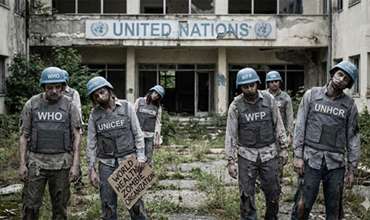


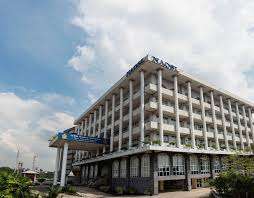
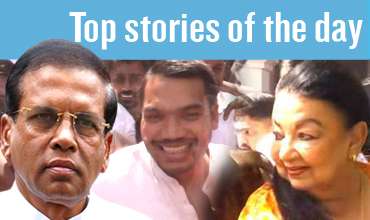

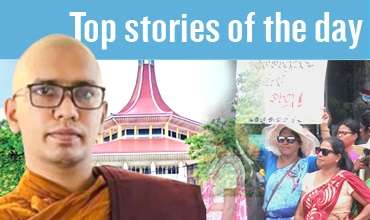

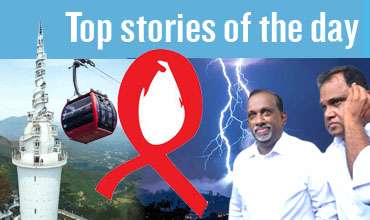


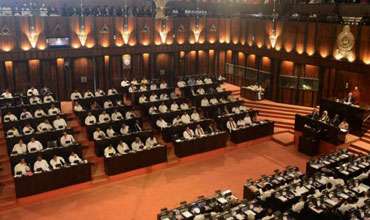
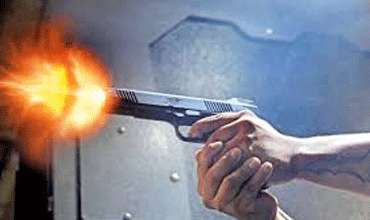
Leave Comments